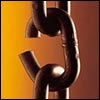"He could ask for anything!… He could storm the heavens with the injustices he faces every day!"
It was the early sixties and Hassidim sat with the Rebbe in New York, while other Hassidim remained trapped in Russia. It was before American Jewry had discovered the Iron Curtain (“Let my people go!”), before Scoop Jackson presented legislation on their behalf. It was Shabbat and the Rebbe was speaking of a letter he’d received from a teenager in Leningrad.
The Rebbe was choked in tears, and his voice broke"He could have demanded anything from heaven! He could have lodged any protest! Instead…" the Rebbe was choked in tears, and his voice broke. Finally, the words came. "Instead, what does he ask? He complains that in middle of his prayers his mind wanders! And he is asking what he can do about it!"
I wasn't there that Shabbat; I would have been a baby if I had been. The story was told to me by someone who was there 35 years ago, and remembers it as if it happened yesterday. I haven't verified the details. But this I know. No one who was there prayed by rote the next day.
Golda Meir was born in Russia and returned as Israel's first ambassador. Word got out that Golda Meir would be in synagogue on Rosh Hashanah. The women in the ladies' section came to touch the collar of her dress. They crowded around her. “Goldenyu!” an old man shouted as she headed out of the synagogue, “leben zolst du!” – you shall live! – a wish with a near imperative ring. Golda didn't know what to say until finally she blurted out in Yiddish, "adank aich far bleiben yidden." Her words spread through the throng like wildfire, and she felt her limp words were a poor mockery of prophetic incantation. "Thank you," she had told them, "for remaining Jews."
So it was. Eastern Europe and America had changed roles, and America became der heim, the home, where Judaism thrived (relatively), unmitigated by surrounding circumstance. In the early eighties, my mother met a man in Moscow who had been a young boy in the yeshiva in Lubavitch when her father, my grandfather, was there. Her father had gone to America, and in this old man's eyes, it was my grandfather, not he, who was living the full Jewish life. They were looking to America for much more than money and mezuzahs; they needed to know that while they were breaking their necks to get a piece of matzah on Passover, seders were extravagant family affairs across the sea – and that Judaism was flourishing. Otherwise, the Jews of Silence would have just been a few lost souls abstaining from yeast in mid-March.
And so it is. Israel is in a time that tries big men. The Iron Curtain has been beaten into rockets that are falling on Israeli towns and cities. (Ceasefires mean a time to reload.) The Israeli people needs our money, because their finances have been interrupted. But that is only a small, small part of what they need. They need our political clout, but that is a small, small amount of what they need. They need our cries of support, but that, too, is a small, small part of what they need.
Any burden is bearable if it is meaningfulThey know they are hated like no one else, in a region where hate is the biggest cash crop and export. They know they are hated because they are Jews. They know that we are hated because we are Jews, but they need to know that we know it too. That the hate is bearable for us because we know we have something beautiful and, in the words of Anne Frank, “we would never want to give it up.”
We look upon Israel with pride and sorrow, like we did a few decades ago, peering through that Iron Curtain. They need to know that we celebrate Yiddishkeit, not bear it. They need to know we don't hide it and don't only remember it when somebody hates us. Any burden is bearable if it is meaningful. If we have meaning then they can bear it. If we don't have meaning, then what are they safeguarding?
In the spring of 1967, when the world spoke of an impending second Holocaust confronting Israel, the Rebbe spoke of tefillin. He quoted the Talmud stating that when we wear tefillin, it invokes awe in all who see us and it protects us. I know there is much kabalistic exegesis developing the theme, but to me it remains esoteric.
This I know. When Israelis come to America, putting on tefillin often gains meaning for them. They tell me so. They tell me so in words, and they tell me in tefillin. When Americans see soldiers in Lebanon and at the Kotel putting on tefillin, it fills them with something inexplicable. I don't know why; the why I leave to our holy rabbis. I just know that it does.
On your ramparts, O Jerusalem, I have placed watchmen, assure the prophets. We see them and something shifts inside our chest cavity. They see us and the prophet's assurance echoes. In our wonderment, something precious is guarded, nurtured and ready to be served when the kids laughing in the courtyards of Sderot finish their games and come inside. Free. Safe. Home.






Join the Discussion